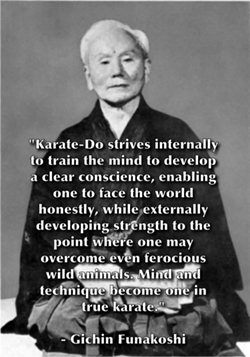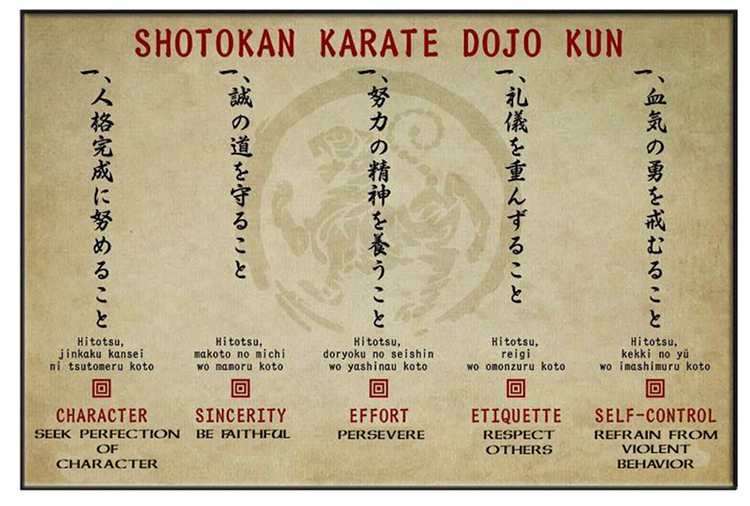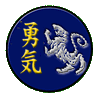What Is Shotokan Karate? |
Follow Us:
|
 |
About 500 years ago, karate as a martial arts was cultivated in Okinawa
under the reign of the famous hero Shohashi and 300 years later, the
development of karate, as a means of unarmed self-defense, received
tremendous impetus, since on the island the use of weapons had been
prohibited by the Japanese government. Because of this national policy the
self-defense techniques developed into the unique Okinawan martial art of
karate as we know it today. In 1922, Master Gichin Funakoshi, President
of the Okinawan Association of Martial Arts, introduced Karate-Do to the
mainland of Japan during the First National Athletic Exhibition held in Tokyo.
The demonstration turned out to be a great success due to the inspiring personality of Master Funakoshi who cultivated the typical Japanese aspects of this ancient martial art of self-defense. Master Funakoshi always emphasized the spiritual aspects of karate, such as courage, courtesy, integrity, humility and self-control. Karate became known as the martial art of the “true gentleman” and gained nation-wide popularity among university students. Master Funakoshi was not only a genius in martial arts, but also a literary talent. |
|
In 1949, the Japan Karate Association was established with Master Funakoshi as
the chief instructor. Through his exquisite skills and guidance, the Japan Karate
Association (JKA) developed into a strong organizational with an international reputation.
After his retirement, Masatoshi Nakayama became the chief instructor of the JKA and
the person responsible for Shotokan Karate in its current form where complete
development of the body, mind and spirit are emphasized through dynamic techniques.
During his time as head of the JKA, Master Funakoshi developed the following precepts which are the basis for any true Traditional Shotokan Dojo in existence today. Yuuki Do Karate follows this Dojo Kun and insures that all students understand it. |
|

|
|
Copyright © 2025. Reuse of ANY website content, is strictly forbidden without written permission.

